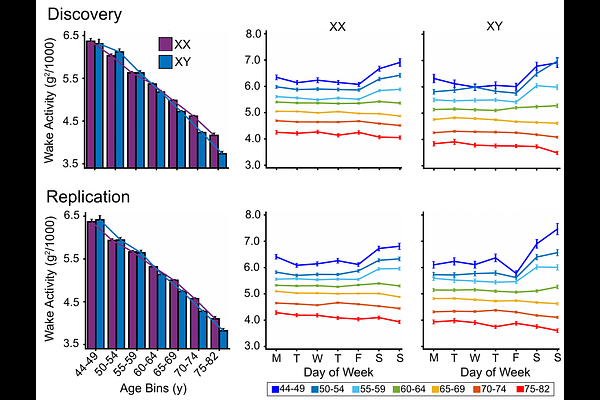Age- and Sex-Related Differences in Sleep Patterns and Their Relations to Self-Reported Sleep and Mood

Age- and Sex-Related Differences in Sleep Patterns and Their Relations to Self-Reported Sleep and Mood
Eichi, H. R.; Baker, J. T.; Fjell, A. M.; Buckner, R. L.
AbstractRobust age- and sex-related differences in sleep were identified (n=38,546) and replicated (n=38,547) from week-long passive actigraphy data in UK Biobank participants ages 44-82. Sleep patterns reflected reliable non-linear interactions between age and sex. Younger women slept about 17 min more than their male counterparts, though this difference diminished with age, with both sexes reducing total sleep duration in later life. Middle-aged individuals exhibited shorter sleep durations during the week, with weekend sleep increasing by as much as 50 min. Participants in their seventh and eighth decades showed more consistent sleep patterns throughout the week. Sleep patterns also suggest maintenance of total sleep duration: individuals reporting waking too early maintain sleep duration by going to sleep earlier, while individuals reporting sleeping too much fall asleep later but also wake later, again maintaining sleep duration. Self-reported depression and anhedonia were associated with reduced total sleep duration across multiple age groups and both sexes. These collective results indicate that the timing, consistency, and overall amount of sleep differs by age and is affected by individual factors.